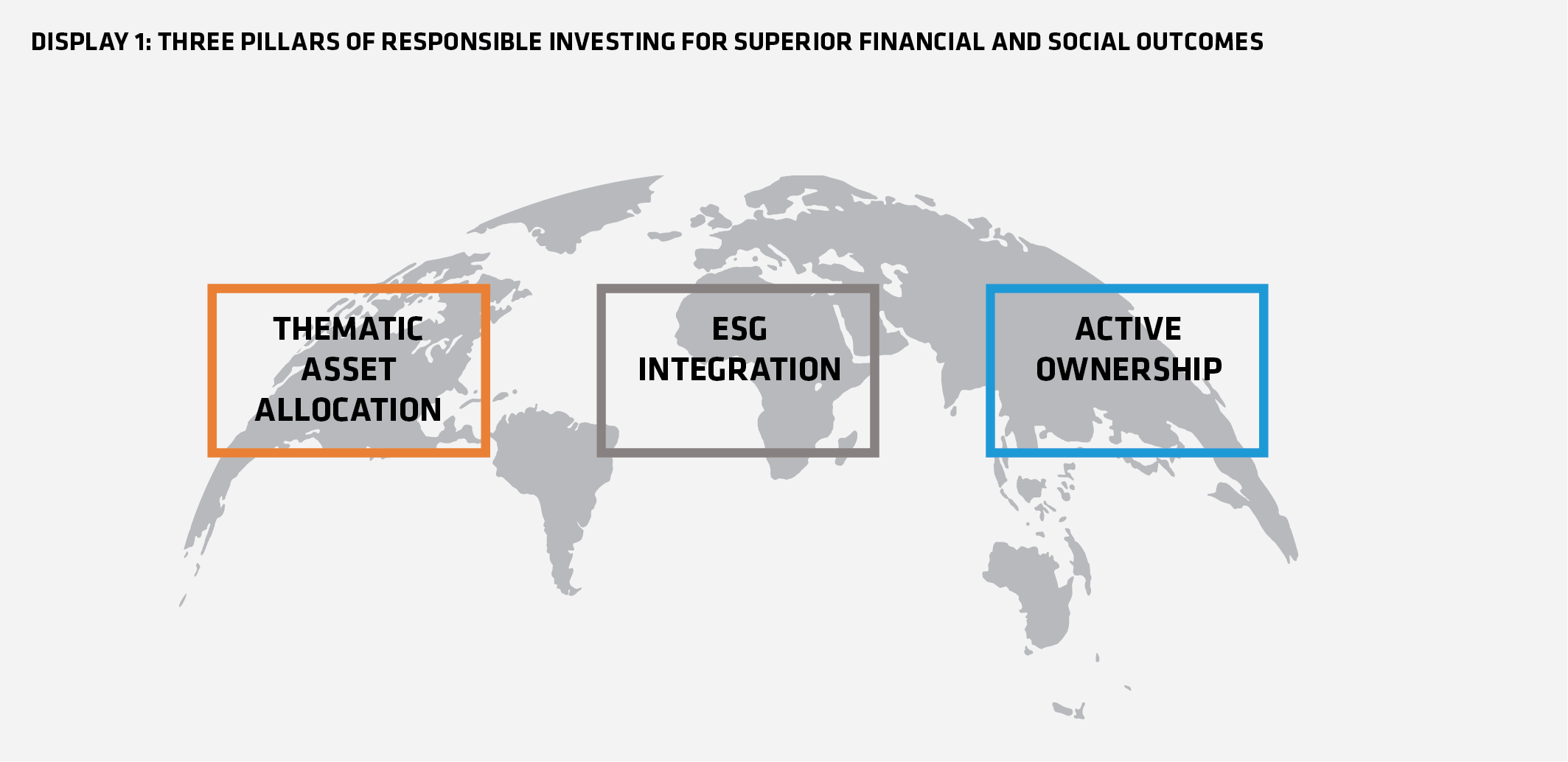In the dusty outskirts of Lucknow in rural Uttar Pradesh, northern India, modern healthcare that could change lives and increase lifespans is finally arriving. Where India’s public healthcare system has failed to deliver, Apollo Hospitals has helped fill the gap in one of the poorest corners of the planet. For responsible investors, the company is a great example of an opportunity to help create social benefits while also generating profits.
Apollo operates the largest chain of private hospitals and pharmacies. With one of the most trusted healthcare brands in India, the company is benefiting from rising demand for hospital beds. Its innovative business model includes a telemedicine command center to connect rural clinics with doctors in larger cities. Our research in 2017—including a “grassroots” meeting with consumers—gave us confidence that Apollo was poised for sustainable revenue and earnings growth.
A Blueprint for Responsible Equity Investment
Finding companies like Apollo is no easy task. It requires a thorough process that can sift through thousands of global firms to identify those that are really making a difference on environmental, social and governance (ESG) issues. Equally important, it requires disciplined financial analysis to make sure that an ESG-focused target company is a good long-term investment.
In this paper, we explain why equities matter in a responsible investing (RI) agenda and how investors can effectively integrate ESG factors in an equity portfolio. Investing in stocks is important for responsible outcomes because publicly traded companies are massive. They employ the most people around the world, consume the most natural resources, generate the most pollution and have a large impact on political systems because of their lobbying efforts and financial muscle. As a result, what they do has a profound effect on countries, societies and sustainability in general. Shareholders who deploy a coherent approach to both making investments and wielding influence can make a big difference.
To make the case for equities in an RI plan, investors can start with the Principles for Responsible Investment (PRI), an independent network supported by the United Nations and endorsed by more than 1,800 signatories across the global financial industry. In a report published in October 2017, the PRI outlined three pillars of RI practices: integration, active ownership and thematic asset allocation (Display). We offer a blueprint for using these three pillars to translate ESG words into action via equity investing.

We’ve developed a disciplined process over several years that is consistent with the three pillars, designed to find stocks that can make a difference, and deliver long-term returns, in a focused sustainable portfolio.
Our thematic asset allocation framework draws on the UN Sustainable Development Goals, introduced in 2015. The 17 goals and 169 specific targets address areas of critical importance to humanity, including eliminating poverty and hunger, improving access to education and healthcare, and addressing the negative impact of climate change. But it would be impractical for an investor to try to focus equally on all 17 goals because the investing opportunities for the private sector aren’t spread equally across the SDGs. Instead, we believe the best way to use the SDGs is to identify those that offer the best investible opportunities and to target those specific areas. This thematic approach also allows an investor to develop expertise that can support effective allocation of capital.
Equity investors can make a big difference by adopting a coherent sustainable agenda, in our view. Thematic asset allocation aligns a portfolio’s target securities with the most important development issues flagged by the UN. ESG integration in research allows for more comprehensive financial forecasting and risk analysis at the security level. And active engagement helps promote positive change at companies, which can also be a driver of stronger investment returns.

